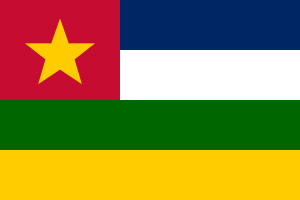Language/Pulaar/Vocabulary/Education
Hi Pulaar learners! 😊
In this lesson, we will focus on Pulaar vocabulary related to education. Whether you are a student or a teacher, this vocabulary will help you communicate better in Pulaar-speaking contexts. Remember, to expand your vocabulary, you can always check out the Vocabulary section on Polyglot Club or find native speakers and ask them any questions!
Take a moment to explore these relevant pages as you conclude this lesson: Colors & Health.
Educational stages in Pulaar[edit | edit source]
In Pulaar, just like in English, there are different stages of formal education. Here are some terms that can be useful:
| Pulaar | Pronunciation | English |
|---|---|---|
| Neemmii !! /nɛm:i/ !! Nursery school | ||
| Donnga !! /dɔŋ:g:a/ !! Primary school | ||
| Kalaaɓe !! /kala:aɓe/ !! Middle school | ||
| Takkeere !! /tak:e:r:e/ !! High school | ||
| Ɓutikkol !! /ɓuti:k:ɔl/ !! University |
Here is an example dialogue:
- Person 1: Njaŋndu neemmii la? (Did you go to nursery school?)
- Person 2: Haa. Mi neemmii ko! (Yes. I went to nursery school!)
Classroom objects[edit | edit source]
To describe objects you might find in a classroom, here are some helpful terms:
| Pulaar | Pronunciation | English |
|---|---|---|
| Gaawal !! /ga:wal/ !! Desk | ||
| Kuruŋkiindol !! /kurŋ:ki:ndɔl/ !! Chair | ||
| Falaafe !! /fala:fɛ/ !! Chalkboard | ||
| Baleejeemol !! /bale:dʒe:mɔl/ !! Eraser | ||
| Dikkiruuji !! /dikkiru:ʤi/ !! Calculator | ||
| Televišon !! /telɛviʃɔn/ !! Television |
Here is an example dialogue:
- Person 1: Njiyiraaɓe gaawal nguu ko. (I need a desk.)
- Person 2: Mi yaltii ko. (I have one.)
School subjects[edit | edit source]
These are some school subjects that you might study in Pulaar-speaking contexts:
| Pulaar | Pronunciation | English |
|---|---|---|
| Ɗemngal !! /ɗɛmŋal/ !! Mathematics | ||
| Caggal !! /tʃaggal/ !! Science | ||
| Beleedalmeetere !! /belɛ:dalme:te:rɛ/ !! Biology | ||
| Istoowi !! /isto:wi/ !! History | ||
| Naamu-ndiine !! /na:mu-ndi:ne/ !! Geography | ||
| Joomlal !! /dʒɔmlal/ !! Language | ||
| Aaliiwol !! /ali:wɔl/ !! Literature |
Here is an example dialogue:
- Person 1: Mi japondu beleeɗalmeetere nguu binndiraaɗo. (I like studying biology.)
- Person 2: Mi jeyaaɗo. Ndamaade he dinnaaɓe aaliiwole piɓɓe baabaayi feewi. (I agree. My grandfather used to write literature books.)
Cultural references[edit | edit source]
Learning about the culture of the people who speak the language you are learning can be very helpful. Here are some cultural references related to education that can help you better understand Pulaar-speaking cultures:
- In some Pulaar-speaking contexts, children might have a naming ceremony on their first day of school. The ceremony, known as "koɓɓel" in Pulaar, is a way of symbolically launching the child into their educational journey.
- Pulaar-speaking regions have a rich oral literary tradition. Pulaar poets, known as "gawlo" in Pulaar, might recite their poetry in schools or educational events.
- In some Pulaar-speaking contexts, schools might have a "bandaaji" or "muddiindi" system, where older students act as mentors to younger ones. The system is meant to foster a sense of community and help younger students feel supported in their studies.
Conclusion[edit | edit source]
Now that you have learned some Pulaar vocabulary related to education, you can better communicate with teachers, students, and educational professionals in Pulaar-speaking contexts. Don't forget to keep practicing and expanding your vocabulary!
➡ If you have any questions, please ask them in the comments section below.
➡ Feel free to edit this wiki page if you think it can be improved. 😎
Sources[edit | edit source]
Excellent job on conquering this lesson! Consider delving into these related pages: How to say Good Bye & Count to 10.

